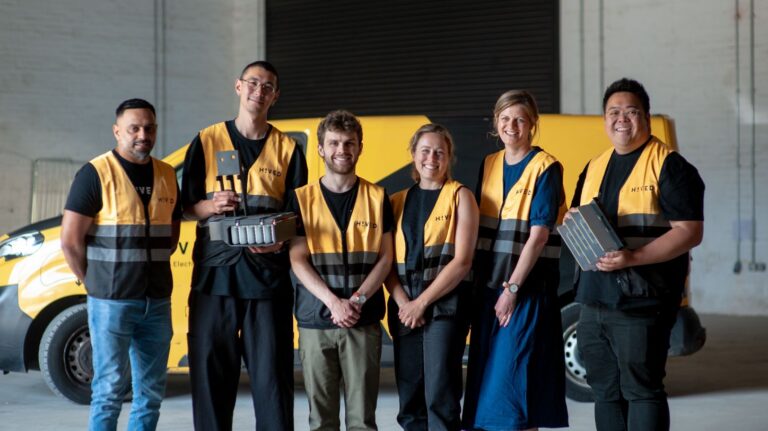HIVED, an all-electric delivery company, has announced that it will trial devices from The Tyre Collective on its vans in an effort to reduce air pollution from the vehicle’s tyres.
The trial will see five of HIVED’s electric delivery vans fitted with The Tyre Collective’s fourth generation prototype (TC04) device. The trial will begin in August 2024, using vehicles in London.
The TC04 devices will sit behind each tyre and ‘capture tyre wear particulate matter (PM) using electrostatics as they are being produced during driving’.
The particulates collected by each vehicle will then be analysed by The Tyre Collective in order to assess the performance of the device.
Tyre wear emissions are a form of pollution that aren’t in the spotlight as much as others like greenhouse gases, and have been described by the Environmental Coalition on Standards (ECOS) as ‘an underestimated source of air pollution that needs to be tackled’.
According to ECOS, around 6.1 million tonnes of tyre dust end up in the atmosphere and waterways annually. These particles are released as a result of tyres breaking down when a driver brakes, accelerates or turns a corner.
Head of impact at HIVED, Gemma Neal, said: “This collaboration aligns perfectly with our mission to not only provide the best customer experience possible, but to also provide one that minimises our impact on the planet.
“Through addressing this often-overlooked source of pollution, our work with The Tyre Collective demonstrates our commitment to sustainability, as well as our dedication to setting new standards within the logistics and transportation industry.”
Building on this sentiment, Hanson Cheng, co-founder and CEO of The Tyre Collective, commented: “Our partnership with HIVED marks a significant milestone for us. We share a mission to reduce particulate matter for a cleaner, healthier environment, and together set a new standard to address non-exhaust emissions in the logistics sector.”
Air pollution is a serious topic, especially in densely-populated urban areas, with research from Imperial College London having found that in 2019, toxic air contributed to the premature deaths of around 4,000 Londoners.
If projects such as this raise awareness of non-exhaust emissions, devices like the ones fitted in this trial might become more commonly used as firms look to become more sustainable in their logistics operations, with the the possibility for such devices to be used within public transportation as well.
Achievements and innovations in sustainable urban transport will be celebrated at the third annual CiTTi Awards, which will be held on 26 November 2024 at De Vere Grand Connaught Rooms in London. Nominations are open now! Please visit www.cittiawards.co.uk to learn more about this unmissable event for the UK’s transportation sector





